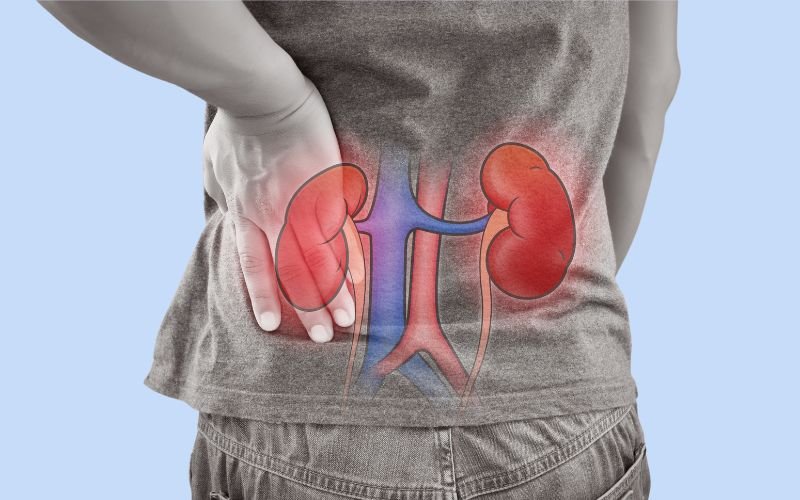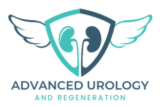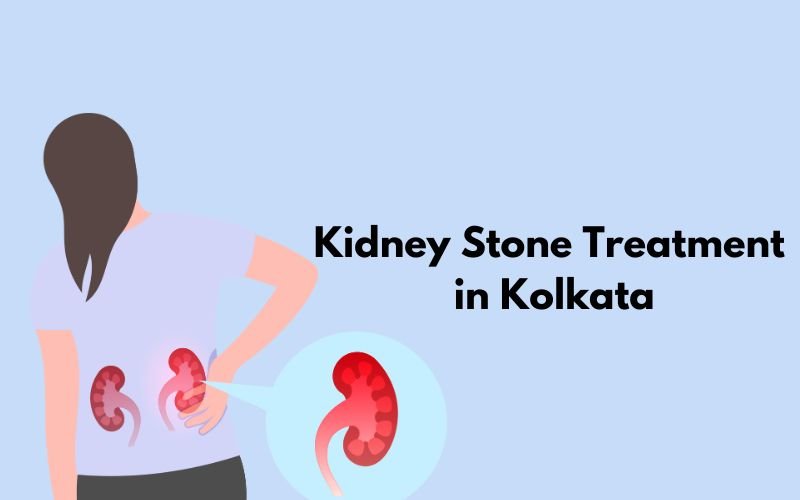
Kidney Stone Treatment in Kolkata: A Comprehensive Guide
Introduction
Kidney stones are hard deposits of minerals and salts that form inside your kidneys. They can cause severe pain and other symptoms, but with the right treatment, you can manage and eliminate them effectively. This guide covers various aspects of kidney stone treatment in Kolkata, providing you with valuable information to help you understand your options.
Understanding Kidney Stones
Kidney stones, also known as renal calculi, can be caused by various factors, including dehydration, high intake of certain minerals, and genetic predisposition. They vary in size, ranging from tiny grains to large stones that can obstruct the urinary tract.
Symptoms of Kidney Stones
Kidney stones can cause a variety of symptoms, often depending on the size and location of the stone. Here are some of the most common symptoms explained in simple terms:
Severe Pain
- Location of Pain: The pain typically starts suddenly and can be very intense. It often begins in the back or side, just below the ribs, and may radiate to the lower abdomen or groin.
- Nature of Pain: The pain can come in waves and fluctuate in intensity. This is because the stone moves through the urinary tract, causing spasms and irritation.
Blood in the Urine
- Appearance: You may notice that your urine is pink, red, or brown. This discoloration occurs when the stone causes damage to the lining of the urinary tract, leading to bleeding.
- Microscopic Hematuria: Sometimes, the blood in the urine is not visible to the naked eye and can only be detected through a urine test.
Frequent Urination
- Urgency: You may feel an urgent and frequent need to urinate, even if only a small amount of urine is produced each time.
- Discomfort: This symptom occurs as the stone moves closer to the bladder and irritates the bladder lining.
Nausea and Vomiting
- Digestive Response: Severe kidney stone pain can affect your digestive system, leading to nausea and vomiting. This is a common reaction to intense pain and can also be caused by the body’s attempt to expel the stone.
Fever and Chills
- Sign of Infection: If you have a fever and chills along with the other symptoms, it may indicate that an infection is present. This can occur if the stone causes a blockage in the urinary tract, leading to a buildup of bacteria.
- Serious Condition: A fever with kidney stone symptoms is a sign of a potentially serious infection and requires immediate medical attention.
Causes of Kidney Stones
Kidney stones form when certain chemicals in your urine become concentrated and crystallize. Here are some common causes explained in more detail:
Dehydration
- Not Drinking Enough Water: When you don’t drink enough fluids, your urine becomes more concentrated. This concentration can lead to the formation of crystals, which can grow into stones. Aim to drink at least 8-10 glasses of water a day to help dilute your urine and prevent stone formation.
Diet
- High Salt Intake: Consuming a lot of salt increases the amount of calcium your kidneys need to filter, which can lead to stone formation.
- High Protein Diet: Eating large amounts of animal protein (such as meat, eggs, and fish) can increase uric acid levels in the body, contributing to the formation of uric acid stones.
- Oxalate-Rich Foods: Foods like spinach, nuts, chocolate, and tea are high in oxalates, which can bind with calcium in the urine to form calcium oxalate stones.
- High Sugar Intake: Particularly fructose, found in table sugar and high-fructose corn syrup, can increase the risk of kidney stones.
Medical Conditions
- Gout: This condition increases the level of uric acid in the blood and urine, leading to the formation of uric acid stones.
- Hyperparathyroidism: This disorder causes the parathyroid glands to produce too much parathyroid hormone, leading to higher levels of calcium in the blood and urine, which can form calcium stones.
- Urinary Tract Infections (UTIs): Chronic UTIs can lead to the formation of struvite stones.
- Metabolic Disorders: Conditions like renal tubular acidosis and cystinuria can lead to the accumulation of stone-forming substances in the urine.
Family History
- Genetics: If you have a family history of kidney stones, you may have a higher likelihood of developing them yourself. Genetic factors can affect how substances are processed in the kidneys, leading to stone formation.
Medications
- Diuretics (Water Pills): These medications, used to treat high blood pressure and swelling, can increase calcium levels in the urine, leading to stone formation.
- Calcium-Based Antacids: Overuse of calcium supplements or antacids containing calcium can increase the amount of calcium in your urine.
Lifestyle Factors
- Obesity: Being overweight can change the acid levels in your urine, making it easier for stones to form.
- Lack of Physical Activity: A sedentary lifestyle can contribute to the risk of kidney stones, as regular physical activity helps to maintain a healthy weight and improve overall kidney function.
Diagnosis
Diagnosing kidney stones typically involves a combination of the following methods:
- Imaging Tests: CT scans, X-rays, and ultrasounds can help visualize the stones.
- Urine Tests: These tests can identify crystal types and the presence of stone-forming substances.
- Blood Tests: Blood tests can check for high levels of certain substances that form stones.

Kidney Stone Treatment in Kolkata
The treatment for kidney stones depends on the size, type, and underlying cause of the stones. Here are the primary treatment options available for kidney stone treatment in Kolkata:
Hydration and Pain Management
Hydration: Drinking plenty of water helps flush out the stones. Aim for at least 2-3 liters of water per day. Staying well-hydrated dilutes the substances in the urine that lead to stones. It’s especially important in a hot climate like Kolkata, where you may lose more fluids through sweat.
Pain Relief: Over-the-counter pain relievers like ibuprofen or acetaminophen can help manage pain. In severe cases, prescription pain medication may be necessary. Your doctor may also prescribe stronger painkillers if the pain is intense or if you are unable to manage it with over-the-counter medications.
Medications
Alpha Blockers: These medications relax the muscles in your ureter, helping stones pass more easily. They can be particularly useful for stones that are stuck in the ureter and causing significant discomfort.
Thiazide Diuretics: These can reduce calcium levels in urine, helping prevent calcium stones. They work by reducing the amount of calcium released into the urine by the kidneys.
Potassium Citrate: This can help prevent stones in people with high levels of urinary citrate. It works by making the urine less acidic, which can help dissolve the stones and prevent new ones from forming.
Medical Procedures
Extracorporeal Shock Wave Lithotripsy (ESWL): This non-invasive procedure uses shock waves to break the stones into smaller pieces that can be passed in urine. It is an outpatient procedure and usually takes about an hour. Patients might experience discomfort during the procedure, and bruising on the back or abdomen afterward.
Ureteroscopy: A thin scope is inserted through the urethra and bladder to the stone. The stone can be removed or broken into smaller pieces using laser energy. This procedure is particularly useful for stones located in the lower urinary tract.
Percutaneous Nephrolithotomy (PCNL): For larger stones, a small incision is made in the back, and a scope is used to remove the stones. This procedure is usually performed under general anesthesia and is effective for stones that are too large to be treated with ESWL or ureteroscopy.
Surgery
In rare cases, open surgery may be required to remove particularly large stones or stones that cannot be treated with other methods. Open surgery involves a larger incision to directly access the kidney and remove the stone. This method is usually considered only when all other treatments have failed or are not feasible.
Prevention Tips
Preventing kidney stones involves lifestyle changes and dietary modifications:
- Stay Hydrated: Drink plenty of water throughout the day.
- Limit Sodium Intake: High sodium levels can lead to stone formation.
- Eat Calcium-Rich Foods: Contrary to popular belief, dietary calcium can help prevent stones.
- Avoid Oxalate-Rich Foods: Foods like spinach, nuts, and chocolate contain oxalates that can contribute to stone formation.
- Reduce Animal Protein: Lower your intake of meat, eggs, and fish, which can increase stone-forming substances in the urine.
When to Seek Medical Help
If you experience severe pain, blood in your urine, or signs of an infection (fever, chills, nausea), seek medical attention immediately. These could indicate a serious condition that requires prompt treatment.
About Dr. Bivek Kumar
Dr. Bivek Kumar is a renowned urologist in Kolkata with extensive experience in treating kidney stones. He is known for his patient-centric approach, combining advanced medical techniques with personalized care. Dr. Kumar has successfully treated numerous patients with kidney stones, helping them achieve relief and improved health. His expertise and commitment to excellence make him a trusted name in the field of urology.
Conclusion
Kidney stones can be painful and disruptive, but with the right treatment and preventive measures, you can manage and reduce your risk of developing them. If you’re in Kolkata and seeking kidney stone treatment, stay informed about your health, maintain a healthy lifestyle, and consult with Dr. Bivek Kumar and other healthcare professionals for personalized advice and treatment options. By taking proactive steps, you can minimize the impact of kidney stones on your life.
Frequently Asked Questions (FAQs)
Kidney stones are hard deposits of minerals and salts that form inside the kidneys.
Symptoms include severe pain, blood in the urine, frequent urination, nausea, vomiting, fever, and chills.
Through imaging tests (CT scans, X-rays, ultrasounds), urine tests, and blood tests.
Treatments include hydration, pain management, medications, medical procedures like ESWL and ureteroscopy, and surgery.
By staying hydrated, limiting sodium intake, eating calcium-rich foods, avoiding oxalate-rich foods, and reducing animal protein intake.

